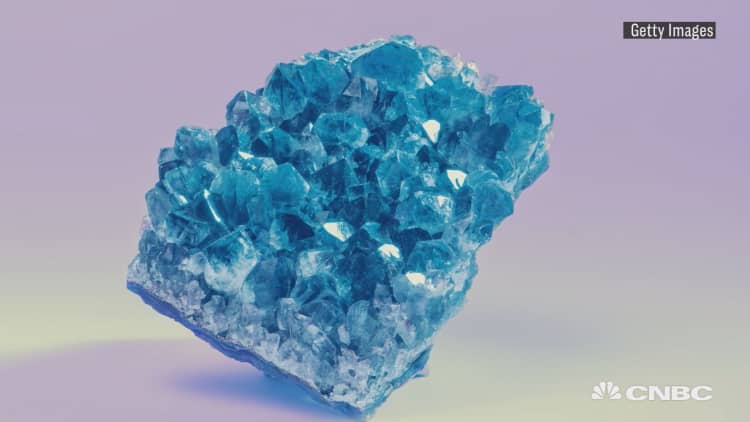Apple could potentially save hundreds of millions of dollars over the next two to three years if the tech giant secures cobalt supplies, an analyst told CNBC.
Daniel Ives, chief strategy officer and head of technology research at GBH Insights, said last week that it makes sense for Apple to try and secure cobalt supply given the rapid increase in the price of the resource over the last year-and-a-half.
CNBC reached out to Apple for comment, but the company did not respond.
In a subsequent interview this week with CNBC.com, Ives put the potential savings at between $500 million and $1 billion.
Cobalt is a key component for batteries that power smartphones and electric vehicles, and is also used by Apple products such as the iPhone and iPad for their batteries.
The company could save those hundreds of millions "over the course of the next two to three years," Ives told CNBC's "Squawk Box." He added that Apple could potentially cut its bottom line cost for batteries by about 2 to 3 percent.
Multiple reports, citing various unnamed sources, said Apple was talking to major cobalt producers to buy long-term supplies of the material directly.
Ives explained that a move into the cobalt market would mean Apple is trying to secure its "fortress" by exerting greater control over its supply chain.
"They're looking at everything that goes into that phone and trying to get more control over it," he said.
Reuters, citing a cobalt industry source, reported it wasn't clear if Apple wanted to buy the cobalt for suppliers that make batteries for the firm, or if it was planning to stand behind the cobalt supply chain as a guarantor.
Previously, Bloomberg reported that an unnamed source said Apple was seeking contracts to secure several thousand metric tons of cobalt a year for five years or longer.
Reuters reported that cobalt prices on the London Metal Exchange rose from almost $20,000 a tonne in January 2016, to around $80,000 per metric ton. The news wire added that global demand is estimated at more than 110,000 metric tons this year.
Apple should have moved to lock in cobalt supplies earlier, according to Ives. He pointed out that, while there was some saturation in the market, about 350 million iPhones were up for an upgrade and there were approximately 1.3 billion active devices.
"This is a move they should have done year-and-a-half, two years ago. There were definitely some questions about, as the prices were going up, why they didn't lock this in earlier," he said.
Clarification: In an on-air interview on February 22, Ives misspoke when he put Apple's potential savings significantly higher than the $500 million to $1 billion range he gave CNBC in a follow-up interview on March 1.
WATCH: Why companies are scrambling for cobalt



